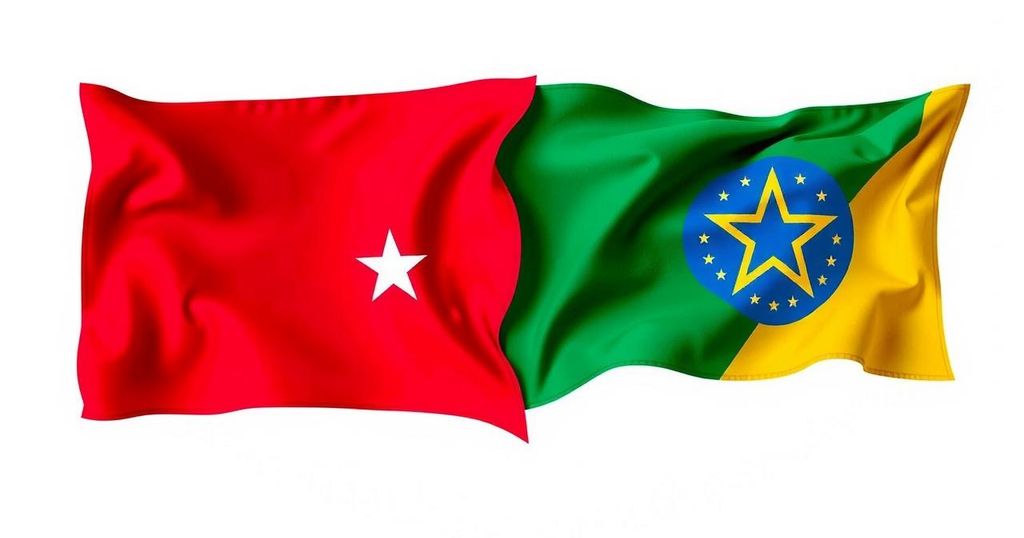Somalia and Ethiopia’s Historic Agreement: A Turkey-Mediated Breakthrough
In a significant diplomatic breakthrough, Somalia and Ethiopia reached an agreement in Ankara mediated by Turkey, resolving a maritime dispute over Somaliland. This agreement recognizes Somalia’s territorial integrity while allowing Ethiopia access to the Somali coastline, amidst pressures from the United States. This development underscores the complex geopolitical landscape of the Horn of Africa and the strategic roles of external players like Turkey.
On Wednesday, in Ankara, a pivotal meeting occurred between Somali President Hassan Sheikh Mohamud and Ethiopian Prime Minister Abiy Ahmed, facilitated by Turkey. This meeting was the culmination of a year-long Turkish mediation effort in resolving a contentious maritime issue. Somalia demanded the annulment of an Ethiopian memorandum with the self-declared republic of Somaliland, which Ethiopia claimed would grant it sea access, a right it argues it possesses due to its landlocked status. Turkish President Recep Tayyip Erdogan urged both leaders to negotiate until a resolution emerged.
Negotiations persistently centered around a fundamental sticking point: Ethiopia’s acknowledgment of Somalia’s territorial unity. While Prime Minister Abiy was reportedly amenable to affirming Somalia’s sovereignty, he hesitated to explicitly recognize its territorial integrity. The Somali delegates referenced international statute, arguing that statehood necessitates defined borders. This discussion ultimately led to the establishment of the Ankara Declaration, which recognized Somalia’s territorial unity while providing Ethiopia commercial access to the Somali coastline.
The agreement includes provisions for technical discussions between the two nations regarding maritime access, set to commence by February 2025. Analysts recognize this as a tactical advantage for Somalia, leveraging the situation to secure a robust agreement, having earlier negotiated its own maritime collaboration with Turkey. Furthermore, Ethiopia’s compliance may have been motivated by external pressures, notably from the United States, concerning security and stability in the region, particularly related to the operations against the militant group al-Shabab.
As a result of this agreement, Somalia will maintain Ethiopian military presence within its borders, a factor influenced by the recent political issues in Somaliland. The new president of Somaliland appears less favorable towards Ethiopian interests than his predecessor, indicating a shifting political landscape that may alter future negotiations. However, the underlying sentiment is one of mutual benefit, as the deal provides Ethiopia necessary maritime access, crucial for its market demands.
The geopolitical dynamics between Somalia and Ethiopia have been marked by territorial disputes, especially surrounding the self-declared republic of Somaliland, which Somalia considers a renegade region. Ethiopia, being landlocked, faces economic limitations and thus seeks maritime access for trade and development. Turkey’s pivotal role in mediating this situation stems from its longstanding engagement in both nations, particularly in military and humanitarian support to Somalia, making it a significant regional player.
The negotiations in Ankara led to a groundbreaking agreement that not only preserved Somalia’s territorial integrity but also granted Ethiopia the maritime access it desperately needed. The successful collaboration between these nations illustrates the potential for diplomatic dialogue to resolve longstanding disputes. The deal reflects the strategic interests of both countries and the key role of Turkey in facilitating an environment conducive to regional stability.
Original Source: www.middleeasteye.net




Post Comment